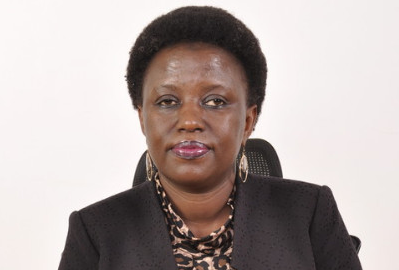The National Identification and Registration Authority (NIRA), under the increasingly dubious leadership of Executive Director Rosemary Kisembo, has once again demonstrated a staggering level of incompetence with the announcement of a significant delay in the mass enrolment and renewal of national identity cards. Originally scheduled to commence on June 1, this essential exercise has been inexplicably pushed to an unspecified date in July due to so-called procurement issues. This announcement has triggered widespread fury and anxiety across Uganda, throwing into sharp relief the severe and potentially catastrophic failings of NIRA.
Uganda’s need for a robust national identification system is not new. In 2014, a four-month exercise managed to successfully register Ugandans for national IDs. Fast forward to today, and NIRA’s latest blunder casts a long, ominous shadow over its capacity to meet its obligations. With current IDs set to expire in August 2024, just ahead of the 2026 general elections, the timely renewal of these IDs is not just important—it is critical. Yet, Kisembo’s hollow reassurances do little to mask the stark reality of systemic inefficiencies that could lead to national disaster.
Kisembo blames the delay on unforeseen procurement issues—a flimsy and unacceptable excuse. How could such a vital national exercise be derailed by procurement delays? This reeks of gross negligence, pathetic planning, and a shocking dereliction of duty within NIRA. The public deserves clear answers: Why weren’t these delays anticipated? What concrete measures are being put in place to prevent such debacles in the future? This level of incompetence is beyond unacceptable for an authority of such national significance.
With the 2026 general elections looming, the timely renewal of national IDs is paramount. IDs expiring in August 2024 could disenfranchise millions if not renewed promptly. Kisembo’s vague assurances that the government is taking necessary measures to mitigate the impact are not just unconvincing—they are infuriating. The absence of a specific start date for the renewal exercise only adds fuel to the fire of uncertainty and undermines public trust in NIRA and the electoral process. This gross mismanagement could lead to widespread voter suppression and electoral chaos.
Kisembo’s attempts to placate the public by claiming that measures are being taken in consultation with the Attorney General’s Chambers are nothing short of insulting without concrete actions and timelines. The public demands transparency and accountability, not empty platitudes and bureaucratic double-speak. What specific steps are being taken to ensure this debacle does not disrupt the electoral process or deny citizens essential services? The government’s response thus far has been laughably inadequate.
The public’s reaction has been one of justified outrage and deep skepticism. Ugandans are rightfully questioning NIRA’s competence and the government’s commitment to resolving these delays. Continuous updates are a step in the right direction, but they must be followed by immediate, tangible actions. NIRA and the government must provide a detailed, actionable plan for the renewal process and address further delays with urgency and precision.
NIRA must face severe accountability. A thorough, transparent investigation into the procurement delays is imperative, with the findings made public. The authority must outline a robust, foolproof plan to prevent such failures in the future. This transparency is crucial to rebuilding public trust. Furthermore, those responsible for these delays must face stringent consequences. Without accountability, there is no incentive for improvement, and the risk of repeating these failures remains distressingly high.
The Ministry of Internal Affairs, which oversees NIRA, must take an active, hands-on role to ensure the renewal process proceeds without further hiccups. The ministry must work closely with NIRA to streamline procurement and other administrative processes, ensuring no further setbacks. This collaboration is essential to restoring public faith and ensuring the national ID renewal process is executed efficiently and effectively.
This delay offers painful but necessary lessons for NIRA and the Ugandan government. Effective planning and risk management for critical national exercises are non-negotiable. Transparency and communication with the public are paramount. Mechanisms must be established to hold officials accountable for failures and delays. By addressing these core issues, NIRA can hope to salvage its rapidly deteriorating reputation and better serve the Ugandan people.
The delay in the national ID renewal process is a glaring wake-up call for NIRA and the Ugandan government. It underscores an urgent need for better planning, transparency, and accountability. The government must act decisively to rectify the current delays and prevent future crises. The Ugandan people deserve leaders capable of managing essential services with competence and integrity. As the 2026 general elections approach, the timely renewal of national IDs is more critical than ever. NIRA and the Ministry of Internal Affairs must rise to this challenge and deliver on their promises. The time for excuses has passed; immediate, decisive action is required.







Discussion about this post